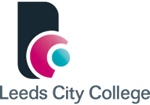-
Day in the Life of a Japanese Game Programmer1/4
-
My Realistic Working from Home Day (as a Programmer) | Tech & Coding2/4
-
5 Things I Wish I Knew Before Starting Programming3/4
-
Why Programming Is Important?4/4
Programming Degree Courses in the UK - Bachelors & Masters
Interested only in courses in London?
10 Programming Courses in London.Student Reviews
Overall student satisfaction
78
/100
3834 total respondents
Primarily based on data from undergraduate degree students.
Source: National Student Survey NSS 2023. The Overall student satisfaction data point is from 2022 (latest available year). The Office for Students made the unfortunate decision to discontinue collecting overall student satisfaction data points per course.
The NSS is commissioned by the Office for Students
Salary
Primarily based on salary data of undergraduate students
Salary of all UK Graduates of Programming
| 15 months after graduation | 3 years after graduation | 5 years after graduation | |
|---|---|---|---|
| Median salary | £27961 | £25489 | £30091 |
| 25-75 percentile range | £23885 - £33047 | £18348 - £32603 | £21339 - £39812 |
Source: Longitudinal Education Outcomes (LEO) by UK Department for Education Dec 20, 2022
All Programming courses in the UK
All Programming courses in the UK
Salary of all UK Graduates of all subjects
| 15 months after graduation | 3 years after graduation | 5 years after graduation | |
|---|---|---|---|
| Median salary | £28286 | £26055 | £30846 |
| 25-75 percentile range | £24647 - £33058 | £19107 - £31964 | £22692 - £39602 |
Source: HESA - Graduate Outcomes Survey Oct 10, 2023
Jobs & Career Perspectives
Career perspectives for Programming
15 months after graduation, graduates of this subject were asked about their current circumstances of employment, what they do, and whether their activities and perspectives are directly related to their studies.
Source: HESA - Graduate Outcomes Survey Oct 10, 2023
Current jobs
Among graduates of Programming who indicated that they are working, the percentage below represents the number who “agree” or “strongly agree” with the statements about their job.
Source: HESA - Graduate Outcomes Survey Oct 10, 2023
Typical employers for graduates of Programming
- Computer Companies
- Computer- based Systems Industries
- Telecommunications
- Automotive
- Aerospace
- Programming Companies
Jobs of graduates of Programming (15 months after graduation)
Example below based on all graduates of Programming at Anglia Ruskin University
| 75% | Managers, directors and senior officials |
| 10% | Caring personal services |
| 10% | Teaching Professionals |
| 10% | Business and public service associate professionals |
Source: Unistats by Higher Education Statistics Agency (HESA) Oct 10, 2023
Grading & Study Time
Grading Distribution
Students of Programming in the UK received the following grades.
Source: Unistats by Higher Education Statistics Agency (HESA) 2016
Entry Requirements / Admissions
UCAS Tariff of Accepted Students for Programming
Source: Unistats by Higher Education Statistics Agency (HESA) Oct 10, 2023
Get advice on which foundation courses are best for you to still study Programming, if you do not meet the minimum requirements in terms of UCAS score, A levels, or English language requirements.
FAQ
The median salary of graduates of Programming was £27961 15 months after graduation, £25489 3 years after graduation and £30091 5 years after graduation.
- The following degrees are offered for Programming studies:
- Bachelor of Science (Honours) - BSc (Hons)
- Bachelor of Science - BSc
- Bachelor of Arts (Honours) - BA (Hons)
- Foundation Degree - FD
- Master of Science - MSc
- Bachelor of Social Science (Honours) - BSocSc (Hons)
- Master of Arts - MA
- Foundation Degree in Science - FdSc
 UCAS Tariff
UCAS Tariff






















